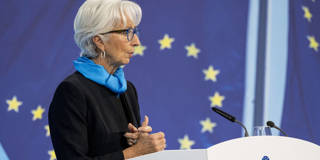Whereas the shock of the COVID-19 pandemic initially prompted unity and convergence in Europe, the current phase of the crisis is much more delicate economically and politically. If mismanaged, it may reopen old wounds and shatter policymakers’ newly acquired legitimacy.
PARIS – Crises pose demanding tests for governments. In 2008, most were found wanting when financial mayhem engulfed the developed world. And within a few years, most of their leaders had been voted out of office as public anger reached its peak. So far, governments have responded much better to the economic fallout of the COVID-19 shock. But will electorates reward them, or will popular fury once again consume democratic systems? Our political future will depend on how voters assess national leaders’ performance.
First, rewind to September 15, 2008, when the US investment bank Lehman Brothers filed for bankruptcy. Financial chaos ensued, and the economy fell into recession. Governments scrambled to limit further damage. Their initial economic response was skillful, but to no avail politically: they were accused of bailing out the greedy bankers they had previously failed to supervise.
Then came major mistakes. In Europe, the errors started with a remarkably incompetent response to the sudden stop of capital inflows to Greece, Ireland, and Portugal, which transformed minor troubles into a near-disaster for the eurozone. Then came premature fiscal consolidation, which derailed the recovery. Europe suffered a double-dip recession, unemployment soared, and support for governments dwindled. They had been successively found asleep at the wheel, complacent and clueless.

PARIS – Crises pose demanding tests for governments. In 2008, most were found wanting when financial mayhem engulfed the developed world. And within a few years, most of their leaders had been voted out of office as public anger reached its peak. So far, governments have responded much better to the economic fallout of the COVID-19 shock. But will electorates reward them, or will popular fury once again consume democratic systems? Our political future will depend on how voters assess national leaders’ performance.
First, rewind to September 15, 2008, when the US investment bank Lehman Brothers filed for bankruptcy. Financial chaos ensued, and the economy fell into recession. Governments scrambled to limit further damage. Their initial economic response was skillful, but to no avail politically: they were accused of bailing out the greedy bankers they had previously failed to supervise.
Then came major mistakes. In Europe, the errors started with a remarkably incompetent response to the sudden stop of capital inflows to Greece, Ireland, and Portugal, which transformed minor troubles into a near-disaster for the eurozone. Then came premature fiscal consolidation, which derailed the recovery. Europe suffered a double-dip recession, unemployment soared, and support for governments dwindled. They had been successively found asleep at the wheel, complacent and clueless.